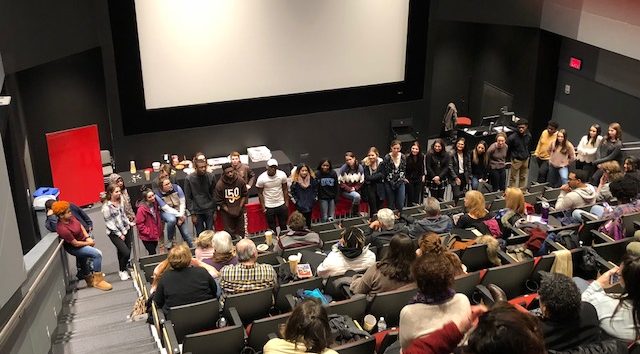KJ was a great guest to have on Monday. She started in my women in film class, where she made a big impression on how she can connect personal stories to documentary film. I thought it was interesting how she turned our own personal stories around and helped us to understand how documentary is made through how we all have our own stories to tell. She asked us all to answer one question, and through that question told us about listening, understanding, and communication. Also, she touched on the importance of building relationships and intimacy of interviewing and capturing stories.
Her film Cameraperson was interesting to me. I was confused about the storyline at the beginning, but was intrigued with how she developed a new way of documenting. I loved her authenticity with the film as well because I didn’t have to question how much thought she put into it. It made me understand the idea that documentary isn’t always made on the pre-filming table and that the story unfolds at the editing portion of the film. I loved how she made herself known in the film, pulling out weeds, sneezing and even talking. I think too many times, documentarians want a polished and perfect film, when documentary is supposed to be the raw and live action that we want opposed to narrative cinema. It gave me encouragement to know that everything doesn’t have to be spick and span and that I can actually give the documentary that ‘real’ feeling, as documentaries are supposed to do.
